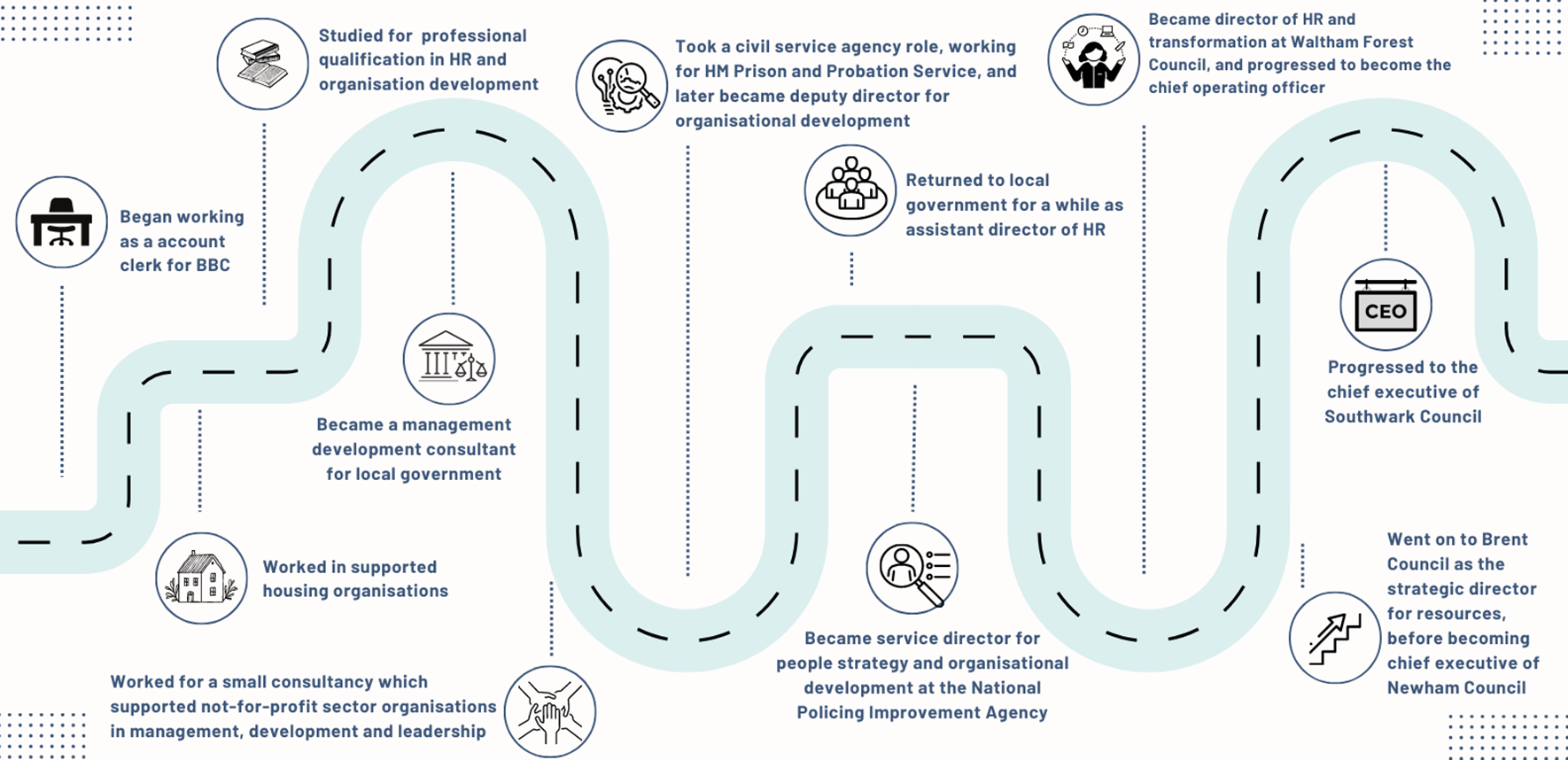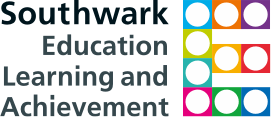Chief Executive
.png)
What is your current role?
I am the chief executive of Southwark Council.
Tell us a bit about your career journey

My first role was as an account clerk for the BBC – it wasn’t planned, but it was a job. After leaving, I spent the next 10 years working in supported housing organisations who worked with young single homeless people, single homeless women and people living with HIV and AIDS.
I decided to study for a professional qualification in human resources and organisational development. That led to a role in local government as a management development consultant, which was followed by working for a small owner-led consultancy which supported not-for-profit sector organisations – big charities, arts organisations and local authorities – in management, development and leadership.
I returned to local government for a while as an assistant director of HR which I left to go into a civil service agency role, working for what was at the time Her Majesty's Prison Service (it's now called HM Prison and Probation Service), where I became deputy director for organisational development. Later I became the service director for people strategy and organisational development at the National Policing Improvement Agency. This involved assessing police for police officer roles, human resources (HR) and people policy in policing, and leadership development in policing.
From there, I went back to local government to become the director of HR and transformation at Waltham Forest Council and progressed to become the chief operating officer. I then went on to Brent Council as the strategic director for resources before becoming chief executive of Newham Council. Now I am the chief executive of Southwark Council.
Did you always know that you wanted to work in this sector?
When I was younger, I saw myself studying for an English degree, and then going on to do journalism. It didn't quite work out like that. I have always wanted to do some work that involves contributing to improving lives, especially those most vulnerable and affected by unequal opportunities. When I look back, that’s been the underlying thread that runs through all the roles in my career.
What do you think are the secrets to getting to where you are today?
Never losing sight of the importance of learning and listening. No matter how senior you become or how much privilege you achieve, you should never lose sight of the importance of learning and listening. You never know it all. None of us have had all the experience, so there's always something to learn from someone.
"Don’t be afraid to try things."
What does that average day look like for you?
I'm really lucky. I've got a great executive assistant that plans out my days. On average, there'll be a lot of time spent in meetings. For a lot of those conversations, I’ll need to read a brief, and it can be quite difficult to find time in the day to do that. About 60% of the day is closely related to what’s in my diary, and about 40% flexes according to what's happening on that day.
What books, audiobooks or podcasts are you currently reading or listening to for personal development?
I get most of my personal development from speaking with other professional colleagues. I'm very curious, and I ask a lot of questions. I think it's really important for us to always seek to learn as much as we can from our interactions and people different from ourselves.
Who or what inspires you?
I'm always inspired by the sheer amazing ability of people to do things that I can barely fathom. Whether that’s some kind of physical achievement or coming up with amazing ideas, or doing ground-breaking things, that inspires me. There are many examples of that in history but also many around me every day.
I’m also inspired by people just getting by. I look back at my life with my late parents, and my greatest inspiration was always my mother. My mum came to this country with my dad, and they raised three children. We went through incredibly difficult times, but she kept us going. She gave us some sense of self despite I’m sure feeling overwhelmed and struggling a lot of the time. There are people like my mother everywhere, just managing another day. I am conscious that inspirational doesn't always mean a gold medal or a Nobel Prize.
What advice would you give to a young person starting out?
Be more focused on what you have and what you are good at rather than what you don’t have or consider negative.
From a work perspective, do stuff you enjoy. I wouldn’t get too hung up on what you'll be doing at 22. You could go to university to study for seven years to become a vet, and then 10 years on decide to go do something different. You could then do another seven years training and do something different, and you’d still only be 1/3 through you're working career. Don’t be afraid to try things.
One of the things that's helped me is trying lots of different things in different places. It’s given me a wide range of experiences and a broader perspective. So my advice would be to try and get some of that perspective.
It's not always going to be what you enjoy, and it's not always going to pay well, and you're not going to get the rewards you probably want straight away, but if you can do a range of things, there’s going to be something you can take away from every experience.

